#rooted in misogyny i am aware and working on it. so it just drives me crazy to see women clearly as insecure & focused on male validation as
Text
very funny that one of the main responses to the lizzo fat-shaming accusations is “but SHE’S fat!!!” as if internalized fatphobia doesn’t exist. like, you do realize that fat people have had that worldview beaten into them by literally every single person around them their entire lives, and famous fat people even more so. celebrity body positivity is so frequently performative — less about genuinely feeling positively about your body and other bodies that look like yours, more about trying to claw your way to having value in the eyes of society through any means possible. it’s out of spite and the desire to fit in. it’s not about conventional beauty not mattering, it’s about trying to expand the lens of societal atttactiveness to include you. lizzo was never trying to dismantle beauty standards as a concept, as a hierarchical way of perceiving society, as a value system. she just wanted to be valued within it — and that’s understandable, because we all want that, we all need to feel desired and worthwhile and valuable. but the best way for an outsider to become an insider is to know the hierarchy inside and out, then to enforce it yourself. if you’re able to gatekeep beauty and value from others, that implies you have access to it yourself. the only way for fat people to be valued within modern societal beauty constraints is to carve out a spot within that hierarchy and guard it with your life. i’m sorry if this is news to people, but so long as our perceptions of beauty remain the same, fat people will never be viewed as equally human — and especially fat women will never be viewed as equally woman. our beauty constraints are premised on a dehumanization of fatness. there is no way to exist as a fat person within that sphere without perpetuating those constraints yourself to prove to skinny people that you deserve to be there. this is why celebrity body positivity is so infrequently helpful long-term or big-picture — it’s not about setting all bodies equal to one another, it’s about raising your particular body equal to those at the top of the hierarchy. so of course lizzo bodyshamed her employees, her backup dancers, her assistants — that’s exactly what enabled her to become a “voice” for “body positivity.” without a position of power in that hierarchy, not only would her calls for body positivity not be heard, they likely wouldn’t exist in the first place; how are you going to feel positive about your body in our ever-competitive pyramid of beauty unless you have people below you to feel better than?
#admittedly i don’t know much about the lizzo drama but i’ve just seen so many tweets flabbergasted that she could possibly fatshame#guess those people just buy into celebrity body positivity wholeheartedly#actually i don’t know much about lizzo in general. i just know that no popstar in our current society has a worldview unaltered by female#beauty standards and that very much includes her.#if your body positivity is ‘i’m sexy too’ and not ‘why is my worth premised on my desirability’ then it’s not actual body positivity at all#like you are still maintaining that the male gaze is the determinant of worth. you are not revolutionary. you are insecure#and SO AM I! like i’m throwing bricks from a glass fucking house. i am the same exact way like i have a lot of issues w body stuff and zero#‘body positivity’ to speak of. but i am aware of my internalized preoccupation with male desire i am aware that i have a skewed perspective#rooted in misogyny i am aware and working on it. so it just drives me crazy to see women clearly as insecure & focused on male validation as#i am framing their appeals to said male validation as body positivity. like you can’t heal if you don’t see the wound#idk if any of this made sense. whatevs sorry#just rambling here#but yeah no it makes perfect sense to me that lizzo would body shame#why? because that is the only way to feel like you belong in a system that inherently excludes you#lizzo#long post
42 notes
·
View notes
Text
This Sarah Everard case is so terrifying for women. But not only am I terrified - I am furious.
⚠️ tw for mentions of r*pe, sexual assault, violence against women, murder etc. ⚠️
She was just walking, including walking by busy roads and not dark alleyways. She was dressed in winter clothes. Even if she HAD walked down a dark alleyway or been wearing something short or “revealing”, she still wasn’t doing anything wrong - she was just walking somewhere.
Her murderer - a police officer named Wayne Couzens - plotted to murder a woman to live out his perverse fantasy. He didn’t plot to kill a specific woman - he knew he would murder a woman, any woman he thought he could abduct, any woman who would be out at night on her own. Sarah was just there.
Not only did he drive miles and hours to kill a woman, not only was he a police officer… he used his badge, police belt, handcuffs and credentials to fake arrest her to get her into his car. If a police officer tells you to go with them, we’re told to not resist, to be obedient or we will be in even more trouble. Even if she HAD done what the MET have just said women should do - “question non uniformed officers!” - it wouldn’t have helped her because he was a police officer. He had the credentials. Why would she run away and resist a police officer? And if women do resist, the police commit violence against them (like at the Clapham Common vigil for Sarah).
He handcuffed her, drove her for hours, then raped and murdered her. This fucking monster strangled her with his fucking police belt. He burnt her body and disposed of her in a pond.
A police officer did this - a fucking police officer, a MET officer, the MET we’re supposed to trust. And you want women to trust them?!!
And I don’t want to hear that “don’t judge the whole profession based on one bad apple”, because guess what? This is not the first time a police officer has harmed a woman. There is misogyny rooted deep in the MET that needs to be addressed. Wayne Couzens was literally nicknamed “The Rapist” by other police officers and had offended in the past by flashing people, and that’s just what we know of - and yet not a single person did anything. The police joked about it. Several officers gave character references supportive of Couzens during the hearings for his sentencing, and female officers told the press that they did not feel as if they could report concerning behaviour by male colleagues.
It’s thought that at LEAST 15 serving or former police officers have killed women in UK since 2009, and HUNDREDS of UK police officers have convictions for crimes, including assault. There are many cases that do not go reported, and so it’s likely the numbers on both counts are actually higher. Why are they still allowed to serve? Why is our government giving them more power and freedom to arrest whoever they please? “It’s not that many” - IT SHOULD NOT BE ANY.
If you can’t see why there’s a huge problem with our police force and why we say “fuck the police”, you’re part of the problem.
And the fear and anger we feel isn’t new - this has been a problem for literally all of our lives.
At 11, I learnt to come home before dark, and if it was dark in the winter on my way home (meaning: every night in winter), I was taught to not go down any dark lanes, and if I was walking the dark lane I had to go down if I got the bus home, I was to walk as fast as I could and to not have earphones in because i wouldn’t hear attackers. Every day from September 2009 to July 2014, coming home from secondary school, I was told to either wait for my dad or grandad to pick me up or to walk down the busiest road that ran near my house and had constant cars on it. I couldn’t take the shortcut down the public footpath on my way home from sixth form college because it was too dark and isolated - I had to go around it and through the village instead, which took more time but was vaguely safer. Since university, I’ve made a point of waiting for the hourly bus that stops just round the corner from my home and on the busiest road, even though I have to wait up to an hour for it usually, because getting the bus that comes every 15 minutes means walking up the dark quiet lane.
At age 13, I learnt not to talk to even very friendly men, even not in broad daylight, even with a female friend, when some old man approached us and started complimenting us, telling us we had “nice smiles” and “I can hook you up with someone who can help you get into acting” and “here’s £10, you go down to the garage down the road and get whatever you girls want”.
At 14, I learnt not to sit in trees in the park by the gate, not even during the day when it’s sunny, when an old man entered the park, took one look at me, and said “you’ve got a nice arse”. I couldn’t prove he had said anything, and I would see him on my way to school sometimes and panic.
At 19, I learnt that I could not trust friendly men online. Apologies to any decent men I have spoken to online - there’s a few who are nice and not weird, I’m not talking about them. I learnt this when a guy I was speaking to on my old blog - who had for weeks just been generally nice and checking in on me - started to send intimate and sexual messages that started with “*hugs you*” and became “*spanks your ass*”, “takes your clothes off”, “f*cks you hard”, just to name a few (and these were the milder ones). When I asked his age, he merely said “older” than me - “more than twice as old as you”, actually. I learnt to not talk to men online, and if I did then I had to set very clear boundaries in a way that wasn’t too obvious - not say it outright but make it clear I am “unavailable”.
I have to carry a rape alarm on my keys, just in case. I could go out to bars if I wanted to, I could have at university when all my peers were - but doing it meant risking the chance of being harmed while intoxicated or on my way home. I have to send my location to my mother if I get any Ubers, if I go out to theatres or cinemas in the evening I have to text my mum to say I’ve arrived safe. I only feel safe out at night if I’m with a man that I trust like my dad or grandad - I got very lucky at Uni because not only did one girl make sure I got home safely at 1 in the morning by calling me a cab, but one boy even stayed with me on another night until my dad arrived to pick me up, because he knew leaving me intoxicated at 2:30 in the morning was dangerous. I have even phoned my grandmother while walking home in the dark because being on the phone to someone means you’re less of a target to an attacker.
Men do not have this experience - or, if they do, it’s nowhere near the fear and worry women feel every day. Women can’t even walk somewhere without being worried of being attacked - we cannot go anywhere without asking ourselves “am I safe?”. Are we wearing the “correct” clothing, so as to not give off the wrong idea? Are we walking down the well lit roads where it’s busy? Are we aware of our surroundings, of every single person nearby? Do I have my keys in my hand, ready to defend myself if I’m attacked? Women are blamed if we are attacked - not men, but women. “She was dressed slutty” “she was passed out drunk” “she was walking down a dark lane” “she was out late”.
When doing safe guarding training at my current TA job, I came across this phrase: “always think it can and will happen”. Just as a teacher or TA should not think “none of my students will be victims of abuse”, women should not for one second believe that they are safe and “it will never happen to me” - every day we have to think of how to prevent our own assault or murder, just in case.
Every time I’m walking home in the dark, I have the fleeting wonder of “what picture(s) of me will they use if I’m attacked or go missing?”. I was not really surprised when I saw that other women said the same thing. Women wonder it so often it’s almost a joke, an absent minded thought. But it’s not a joke - it’s real life for us, every single day.
Sarah Everard is not a one off case. Sabina Nessa, a 28 year old primary school teacher, was murdered on 18th September this year, her body discovered the next day by a dog walker. So far in 2021, 110 women have been murdered in the UK by men (or men are the prime suspects). Only a handful get national attention because at this point, violence and murder against women have become normalised in this country.
I am not only heartbroken for all of these women and their families - I am scared for my own safety; I am scared for the safety of my mother, my grandmother, my aunts. I am scared for the safety of my 20 year old sister, the safety of my 17 and 14 year old cousins, for the safety of my older male cousin’s two daughters who are only 4 and 1. I am scared for the safety of every single girl and woman I have worked with, the safety of every woman I have ever spoken to.
But I am also furious and filled with rage. Women should not be scared to go out or have fun, we should not have to take such precautions or measures that still won’t completely prevent our assaults or murders. I am sick and tired of the victim blaming when a woman is murdered, of the indifference of “oh another woman”, of this being how women are expected to live their lives.
I’m tired of this problem being ignored by our government, tired of no one giving a shit about us or our safety.
#sarah everard#wayne couzens#tw violence against women#tw rape discussion#tw crime#tw murder#tw assault#tw rape#tw police murder#tw police brutality
16 notes
·
View notes
Text
History as an academic discipline is quite a bit more scientific than I think people on tumblr are really interested in giving it credit for. I don’t want to diagnose the root cause of the problem too much, but I do think it’s quite intimately related to the way in which lots of folk on here are driving by emotional politics rather than ideological politics — which is to say, people feel that something should be the case, and therefore believe X, Y, or Z, rather than people have a structural analysis of something, and therefore believe X, Y, or Z. This goes hand in hand with the rise of popular individualism in the anglo west in the late 70s, early 80s (see Emily Robinson et al.) and the various associates political/cultural elements therein. I won’t say more here, but this is a lot of what my research is on, So I do have thoughts.
Anyways — history is a far more scientific discipline than people are really ready to accept on here. When you go through training as a historian, you’re trained in a variety of methodologies and historiographical philosophies, and a lot of them sit in tension or contradiction with one another. However, even the most hardline subjectivists (like EH Carr, for example) would agree with this premise: historiographical narratives cannot be disproved on sentiment alone. They can only be disproved with sufficient research or reinterpretation of extant evidence. They cannot be disproved simply because they don’t feel right.
What that means — and this is an emotionally and politically complex reality of the field, please don’t assume that I’m endorsing it — is that as historians, we have to accept certain things as historical fact, even if we don’t necessarily agree with them morally or politically. For an example from my field, I think it’s incredibly gender essentialist and degrading to assert that ‘women tend to tell more emotive life histories and men tend to tell more event-oriented life histories.’ But the existing research says that this is true. In my research, I’ve worked to overturn this orthodoxy by uncovering new evidence of women who don’t tell emotive life histories and instead choose event-oriented narrative structures. I have also reinterpreted existing evidence to argue that the initial conclusions are wrong. However, given that my research has not yet stood up to peer review, nor has it been published, I have to accept that the state of historiographical play says that the above statement is true. I feel as if that’s wrong, but insofar as proving that it’s wrong goes, I haven’t met the criteria yet. I intend to, but I’m not there yet.
This is fine, this process doesn’t cause problems for trained historians, for archivists, museologists, etc. The problems arise when laypeople — particularly laypeople on social media — misinterpret how and why this process of knowledge production exists the way it does, and through that misinterpretation extrapolate information that they should not reasonably be extrapolating to draw illogical conclusions. To continue the example of my research, it would not be unsurprising to see people on tumblr call me a gender essentialist for accepting that historiographical premise in my work. It would not matter that politically I am not a gender essentialist, nor would it matter that my work seeks to problematise that gender essentialism, the very fact of my beginning with a widely-accepted (if politically and historically incorrect!) premise for my research would be enough to earn the GE label. You see this frequently with the generalisations that history as a discipline is homophobic, that historians are all colonisers, or that historical work is inherently misogynistic. The problem here is that it erases and complicates the work of historians who are trying to unsettle those norms — and the historians who are not homophobic, imperialist, or misogynistic and who are not working to unsettle those norms, but whose work nonetheless remains valid and important.
We, as historians, cannot problematise every bit of knowledge at all moments. The orthodoxy has to be chipped away bit by bit. I’m not going to say that it isn’t frustrating, tiring, or even (tbh) dehumanising, but it’s the state of the state in academia. But that we are forced to work within these incredibly tight parameters does not make us morally or politically illegitimate; if there is a way to secure a revolution in the academy that has not yet been tried, I would welcome advice on it. Such as it is, reform is the only plausible path forward (in the academy!!! Not generally!!!).
When people on tumblr, typically people who are not aware of how the historiographical process works, pontificate about historians writ large being homophobic/misogynistic/racist/whatever, they are actively damaging the historians who most need to be heard. The pale, male, and stale bourgeois academics aren’t hurt by those accusations, because they simply don’t give a fuck. Historians like me, however, queer, disabled, nb historians (for just one case), are hurt by those accusations. It functions as a delegitimisation of the research that I do, of the serious and credible political work I am undertaking both as a researcher and as an activist, and it encourages me to give up on this small corner of a wider struggle. If historians like me — or indeed historians not like me, but who do not fit the bourgeois academic mould — are chased out of the academy, you will not have succeeded in making history more accurate, more diverse, or more politically correct in its analyses. You will have, essentially, ceded the ground to the regressive orthodoxy. And for whatever criticisms I have of tumblr’s liberalism and general detachment from practical politics (go touch some fuckin’ grass guys!), I do not actually believe that you’re trying to undermine the effort to decolonise and democratise knowledge. I think a lot of you are being incredibly unhelpful and even very damaging, but I think it stems from ignorance, not malice.
Anyways, it’s really late, I’m very tired, I’ve had an incredibly difficult day dealing with people (historians! yes! bad women historians!) who promote rank misogyny in their obsession with emotive politics above serious politics, so I’ll do everyone a favour and stop talking and go to bed. But I do really wish people would approach this stuff with more sensitivity and respect than they do right now. Ugh. Okay. Night.
6 notes
·
View notes
Text
Facing Our Making, Part 3: Makeup and Gender
Welcome to Part 3 of my makeup blog series! This week we’re going to poke at gender and makeup. But before I begin, let’s review parts 1 & 2, and check in about where we’re at:
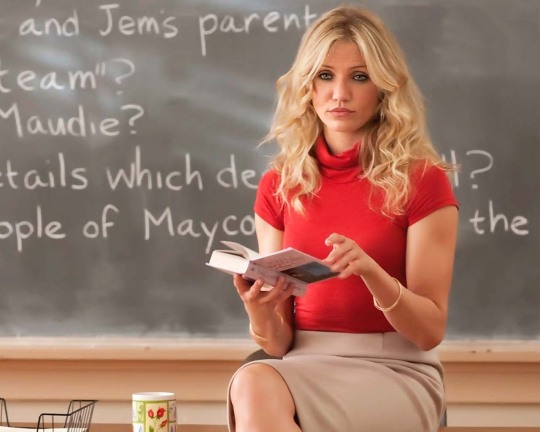
1. Beauty standards are impossibly harsh and cause a lot of unnecessary pain.
2. Let womxn decide what they want to do with their own damn bodies and stay out of it. Unless they hire you for a consultation.
3. Wearing makeup is awesome
4. Not wearing makeup is awesome
5. Your gender presentation and basically any presentation of your body and behavior do not determine who you are and aren’t attracted to sexually. And no one is the (*^*^%^$#%$#&*&^&%% authority to determine that for you. If they try, remember that they’re judging and labeling you in relation to their own internal gender/sexuality struggles. More on this in today’s blog below.
6. How toxic masculinity ruins the day in relationship to makeup or not makeup needs to die, and YES womxn also support and host this behavior (internalized misogyny). Just because a person has a vagina or presents as femme does not mean they are exempt.
7. Womxn who wear makeup are not whores unless they are, in fact, professional whores. Professional whores keep the world turning, and bless em for it. The problem isn’t sex work. It’s violence against sex workers. Consider your complicity.
8. Womxn are reclaiming the hell out of the word “Slut”, so don’t get caught being a dumb idiot who uses the outdated, violent, misogynist definition. 1000 years vagina dentata upon your entire household.
9. If you want sexual attention because you enjoy sex, then FUCK YEAH GIT IT!!!
10. “Pretty girls are dumb” is a myth that our society desperately seeks to nurture and maintain. This is rooted in dominance, power, control, and whorephobia. Stop it.
11. “Ugly girls are smart” makes no damn sense. Okay, yes I can see the backwards logic, but also if you listen to flat-earthers long enough you could even be like, “ok, I see where you’re coming from with that”.

It is not lost on me that certain beauty trends and habits can trigger and enable body image problems, ranging in severity. After attending a panel discussion that featured a speaker from Media Girls Boston, I learned that girls as young as 9 are learning that they essentially need to brand themselves through social media so that they can merely exist.
Saying this is a problem is an understatement.
I support makeup and rituals of adornment. I support a lot of things that, if used improperly with dangerous motivations, can result in severe consequences.
Understand that there’s a lot of nuance in subjects like this, and utilize your critical thinking brain when exploring such topics. Continue your personal research if you’re curious about any subcategory in this series that I have not addressed.
If issues of beauty standards and pressure are uncomfortable or triggering for you, or if you or a loved one believe they may be suffering from a body-image related disorder, please know you are not alone, and there are people out there who are ready and available to support you through this. Links and hotline numbers are available in the resource section at the end of this blog.
-------------------------------------------------------------
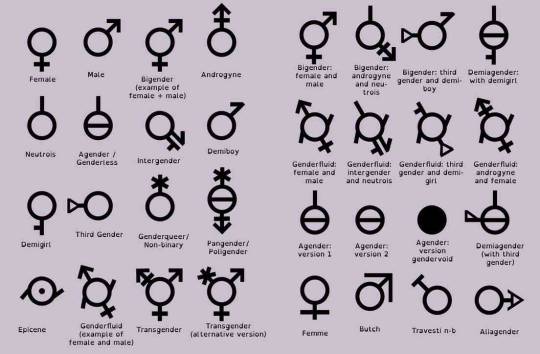
“If we are all members of one body, then in that one body there is neither male nor female; or rather there is both: it is an androgynous or hermaphroditic body, containing both sexes [...] The division of the one man into two sexes is part of [our] fall.”
--Norman O. Brown, in Love’s Body, 1966
Okay! Let’s talk about this super important element of the art and ritual of beauty:
Gender!
To Marie Kondo this:
This subject does not bring me joy, and I do not want to write about it, but I feel that I have a responsibility to not play floor-is-lava about it.
It does not even bring me the type of righteous rage that fuels me to furiously complete a post.
It fills me with doubt, insecurity, self loathing, trust issues, and a desire to disappear.
I need to say this because I know I am not alone in my feelings and experience. But I will keep it very brief because I’d like to move on.
I have experienced a lifetime of pain from the bullshit pressure the heteropatriarchy puts on female bodies. I never anticipated the heartache I would experience as a result of being judged and denied by fellow queers.
I am too butch, too unfeminine to be accepted as the right kind of woman in heteropatriarchal society. I make men question their sexuality, and I am the one made to suffer for it.
I am too feminine for queers to believe and accept me when I tell them I’m genderfluid (which I have been, quietly and privately, my entire life).
I am not feminine enough to be femme.
Too much woman. Not enough woman. Not woman. Not human.
Once again, my body and my soul are everyone else’s to judge, determine, and own. Not mine.
And no one wants to listen when we say the world hates women.
I highly suggest looking up the toxic concept of femme invisibility in queer communities. You can start by reading this great article by Bust:
https://www.bustle.com/articles/166081-what-does-femme-mean-the-difference-between-being-femme-being-feminine.
For the record, I still use she/her pronouns. I stand by my allegiance to the fullness and diversity of womxnhood in a deeply ferocious way. My reasoning for that is both very simple and very complicated. So I guess that just makes it very complicated. Ask me how.
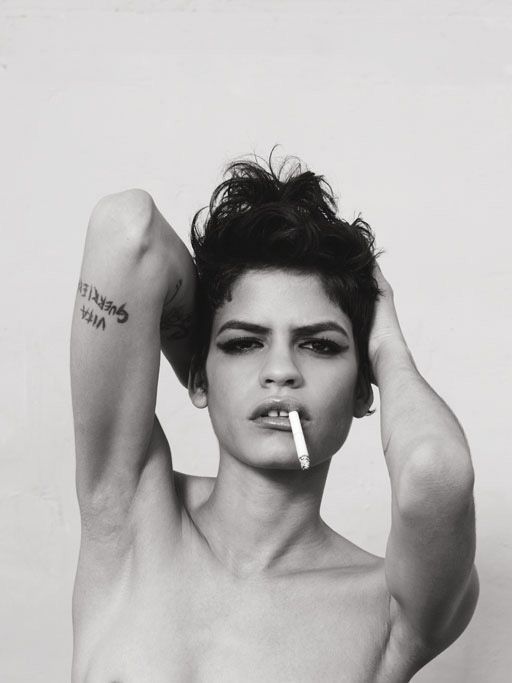
Mood.
Anyway, makeup.
About a month ago, I had wrapped a film shoot with some friends who flew up from Mexico. It was an incredible weekend that filled me up with so much bliss. On the drive back to Boston, I was chatting with my beloved friends and fellow Scarlet Tongue artists, Creature and Cass, about how much I enjoy the company of Mexican men. A large part of that is because it is refreshing to be around men who so easily embrace and express feminine qualities of articulating their emotions, accessing their emotions, gentleness and nurturing. Creature presented the important argument that such qualities don’t need to be classified as feminine or masculine; they’re simply personality and behavioral traits that anybody can have.
Such a point is absolutely crucial in untangling the oppressive nature of the gender binary.
Exercise:
The following traits have been classically designated as “masculine” or “feminine” behavior, but I’ve jumbled them together in the list below. Which traits do you believe belong to whom?
Reserved
Warm
Sensitive
Utilitarian
Deferential
Apprehensive
Reactive
Emotionally Stable
Serious
Lively
Socially bold
Shy
Rule-conscious
Expedient
Private
Perfectionism
Anxiety
Group-oriented
Self-reliant
Tolerates disorder
Vigilance
Extraversion
Traditional
Grounded
Agreeableness
Neuroticism
Excitement-seeking
Attraction to aesthetics
Answer:
Hahahahah, I’m not going to give you the answer. It doesn’t matter.
Yes, hormones do impact some behavior.
And YES, how we’re socially conditioned impacts which traits are more dominant.
But the point is, there is an imaginary line between the two categories. The saddest reality is that, even though any human is capable of any of these traits on the list, society has determined that consequence and punishment must befall anyone who strays from their category.
An enforced gender binary is dangerous.
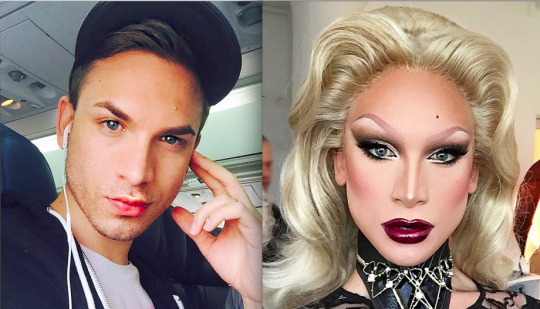
Enter makeup.
Makeup has served infinite purposes throughout the course of history. It’s an incredible vehicle for expression, as well as radical social and political rebellion. Makeup has shaped entire movements of art, social justice, philosophy, and construction/deconstruction of body politics.
Your lipstick is more than patriarchal pigment in a tube. It is a tool for revolution.
Most people assume that makeup is only for clowns and cisgender women, and anyone else who uses it is simply a deviant who has “stolen” it.
Nooooooooooooooooooooooooooooooooooooo
Nononononononono
This probably won’t come as a shock to most of you, but yes-- Christianity also temporarily ruined makeup.
Once upon a time, it was quite normal for men to wear makeup. Then the Jesus toe-suckers made up a whole bunch of arbitrary rules about what we currently observe masculinity and femininity to be, and here we are in this stinky pile of crap rules.
I highly recommend reading this article to learn a tiny bit more of the history of men and makeup:
https://www.byrdie.com/history-makeup-gender
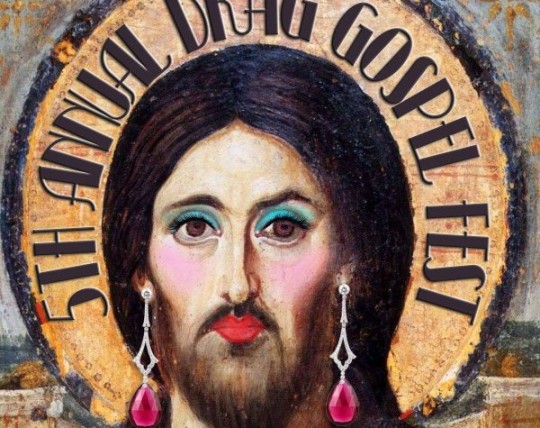
Who wears makeup and how people wear makeup has shifted so much throughout history, and the struggles we experience around this today have only been relevant for a hundred years or so. One of the most common forms of rebellion we hear of is when women reject traditional femininity. Whether “burning our bras”, shaving our heads, or growing out our armpit hair, this is not an uncommon experience for a lot of women.
The scandal!! The pet has escaped her cage!!
So many women I know have experienced an anti-femininity phase at least once in their lives. Sometimes this “phase” transitions into a permanent rejection of gender norms, but it really varies from person to person. Often it’s set off by an overwhelming awareness of how much women are defined by superficial characteristics, traditionally determined and enforced by men. So we attempt to take ourselves out of the system by wearing neutral and aggressive clothing, switching up which parts of our bodies are hairy and which aren’t, and avoiding anything “girlie”. Revisiting my conversation with Aepril, my high-glam friend who inspired this blog and was mentioned in Part 1, she made a good point about honoring such an experience:
“I went through a miserable phase in my feminist youth where I thought I was being uber feminist by not shaving or wearing makeup or wearing heels, etc, because to do so was giving into the patriarchy. I was miserable of course. It took my drag queen friends to wake me up to that, as I realized that they were willing to give up family, social status...their safety and even their lives for the privilege of expressing themselves in a glamorous, feminine way. While I had that privilege because I was born in a female body. I might be criticised by both men and women, but I wouldn’t be beaten in the street for transgressing gender roles. I realized how much it meant to me through seeing how much it meant to them. Why should I give that up either? Why should anyone have to?”
In Aepril’s situation, she found that her place of authenticity was through femininity. In a world that is so divided between the shoulds and should-nots of who we’re supposed to be, I find it important to squeeze ourselves through and experience all sides so we can settle on what’s true for us. Then it’s no longer conformity; it’s an outlet.

In the 20th and 21st centuries, the use of makeup norms has been subverted to amplify voices that demand human rights and fair treatment. Its application has been largely linked to LGBTQ+ visibility and gay rights movements. The anti-Vietnam movement in the late 60s and 70s utilized makeup to display over-feminization and homosexuality as a way to avoid being drafted. The glam rock movement gave us icons like David Bowie, exposing and exploding restrictive gender norms through outrageous clothing and makeup, utilizing pop culture to spread ideas and acceptance of androgyny. “Female impersonation” has origins dating back to the 19th century in Europe, and the art of Drag Queens & Kings is alive and well today, celebrating, mocking, questioning, and expanding gender in clubs and theaters, in film, and right in our homes through TV favorites like Ru Paul’s Drag Race.
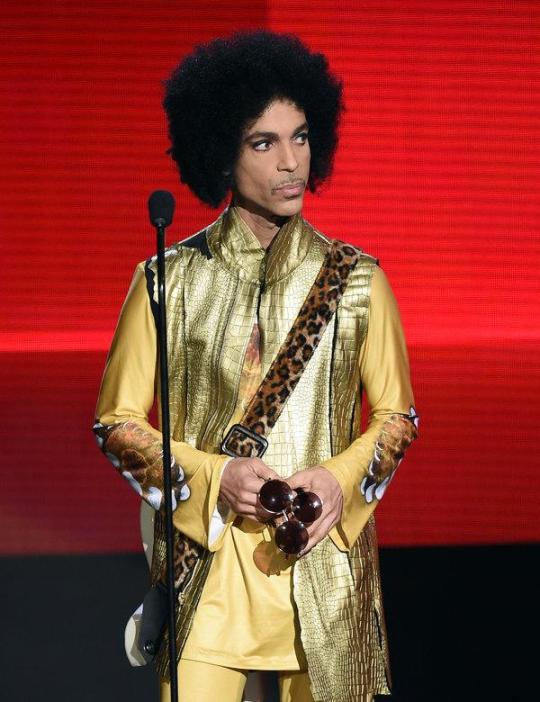
For our trans-sisters, the decision to wear makeup could have life or death consequences. As a transwoman friend of mine disclosed a few months back, when she’s walking down the street and hears a man call after her, her immediate thoughts turn to, “will I experience violence because I’m a woman? Or will I experience violence because he thinks I’m a faggot?” There is a lot of discussion in the trans community about the privilege of “passing”, and I believe these conversations have further supported the struggles womxn generally face-- does wearing makeup make you more or less of a woman?
As writer Lux Alptraum points out, “the idea that external appearance is what makes someone a “real” woman is the very thing that many trans women have committed themselves to fighting. To the extent that makeup is an essential part of any trans woman’s gender identity or notion of her womanhood, it’s largely because that’s the message the rest of the world aggressively forces upon her.”
Read the rest of this article at https://www.racked.com/2017/3/23/14937266/trans-women-makeup
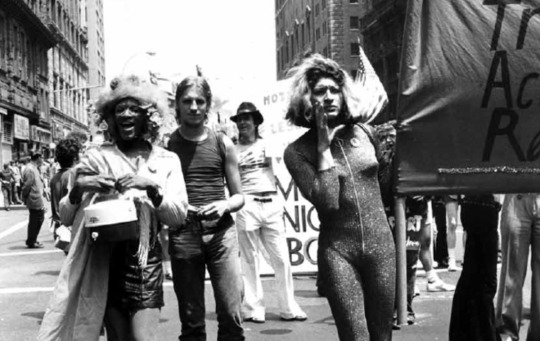
Makeup is incredibly powerful. It can be used for protest, and it can be used for comfort. It’s daily wear, and it’s political. It’s an expression of freedom, and a bold face confronting restriction. It’s transformative, giving people the opportunity to live in the bodies and images that feel right and true for them. Makeup is art, an embracing of life and physicality, a way to show up, be counted, and be present. It’s an act of defiance, and an act of love.
I recently read that Facebook now has 56 gender identities one can choose from. Facebook blows, but wow that’s actually really awesome! Within that list, some of the more frequently used terms include:
Agender/Neutrois
Androgyne/Androgynous
Bigender
Cis/Cisgender
Female to Male/FTM
Gender Fluid
Gender Nonconforming/Variant
Gender Questioning
Genderqueer
Intersex
Male to Female/MTF
Neither
Non-binary
Other
Pangender
Trans/Transgender
Transsexual
Two-spirit (Important: this is Native American. Don’t pull a Jason Mraz. Don’t appropriate)
Out of this list, the following folks are allowed to wear makeup:
All of them
Everyone
Anyone
Everybody
The General Public
The Whole World
Human Beings
Aliens
Animals but only if they’re actually humans in animal costumes
If you’re interested in following makeup artists on IG who are trans or gender non-conforming, here is a great starter list (partially sourced from wearyourvoicemag.com):
@ brownbeautystandards
@ vlad_theunicorn
@ jade_poncee
@ makeupby_bran
@ rosalynnemontoya
@ miles_jai
@ completedestruction
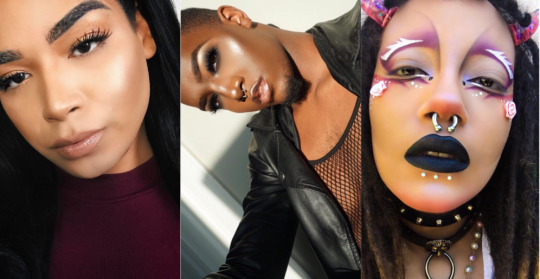
Again, there are infinite reasons why people of any gender do and don’t wear makeup, and I’m not going to be an authority on the matter. But I hope some of this information helps you on your journey to understand yourself better, and hold space of greater allyship and tolerance for others.
Below are some links and phone numbers if you feel you need greater support for the topics being discussed in this blog series. Being beautiful is cool, and so is being safe. You deserve to be here, and you matter.
Enjoy your week, and we’ll see you back here next week for Part 4: Performance Artists and Makeup!
National Eating Disorders 24 hr Hotline: 1-800-931-2237
https://www.nationaleatingdisorders.org/body-image-0
TransLifeline Hotline: 877-565-8860
https://www.translifeline.org/
LGBT National Hotline: 1-888-843-4564
https://www.glbthotline.org/
National Suicide Prevention 24hr Hotline: 1-800-273-8255
http://sexworkersproject.org/resources/
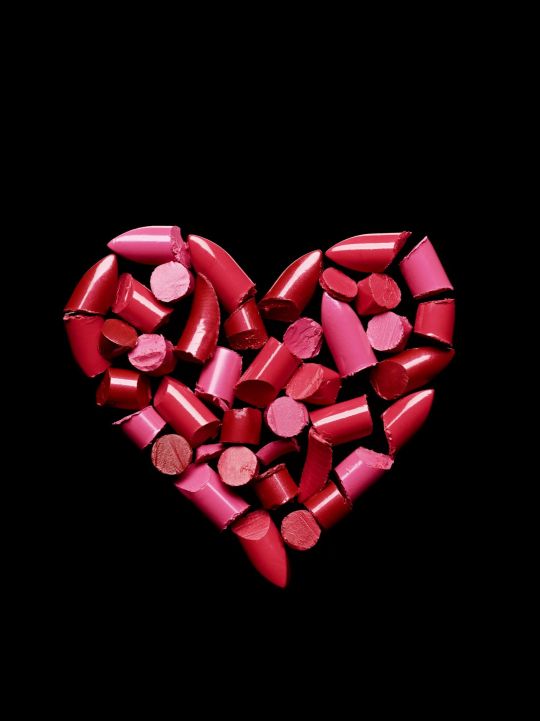
3 notes
·
View notes
Text
JOURNAL – DAVID AND CAMUS – PART 4 – THE FALL

Titian’s Fall of Man, c1550. Image courtesy Museo del Prado, Spain
This journal is a continuation of Part 3, which may be accessed via this link :
https://thinktosee.tumblr.com/post/613609798512115712/journal-david-and-camus-part-3-the-fall
Journal to David
Dear David my Son,
“I always thought our fellow citizens were crazy about two things : ideas and fornication.” (The Fall, p5)
Albert Camus’ monologue of 1956, titled “The Fall” is arguably the most distilled exploration of his philosophical beliefs about Existentialism. The term, “arguably” is applied here as it’s possible you’d disagree. Yes, “The Stranger” is emotionally, yet intellectually stimulating – fused to mine the soul trapped within the reader, rendering it to explode to the surface, as a dramatic offering of our otherwise dormant passions! (1) “The Myth of Sisyphus”? Well, that’s absurd. It is exasperating and predictable like any ritual, religious or otherwise. Besides why do we have to repeat it again and again? Boring. Say what? That’s Life, ain’t it? In Sisyphus, Camus makes us see the folly of our ways, of our life, with a Dante-que’ twist.(2) It’s no doubt a revealing story, I agree. But let’s get back to The Fall, shall we? That’s the real enchilada there. That’s the story of the fall of man.
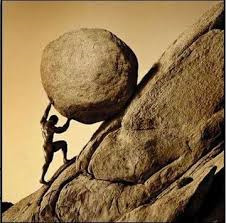
Sisyphus, burden and hope – Image courtesy reasonandmeaning.com
The Fall hints at the Garden of Eden when Google, oops pardon me, I mean Knowledge, made its entrance on the camouflaged stage following the supreme feast of the apple. And as in Sisyphus, that original fall is repeated forevermore everywhere, as if perfection and triumph are within our slimy grasp, each time we laboured. But hey, what do I know? You were the Camus-go-to-guy. You were the Existentialist, David (3). I am just following in your footsteps. Hence, our fall? Our never-ending search for Knowledge.
Camus’ The Fall takes the reader through the colourful musings of Jean-Baptiste Clamence, formerly a successful defence lawyer in snooty Paris, to his new digs in “Mexico City” a bar located in so very depressing Amsterdam. What in heavens caused this fall from grace? A couple of things, just like what happens on any given day to many of us, really, when Truth happens to cross our path, like a black cat :

Our copy of Albert Camus’, The Fall. This excellent edition is translated by Robin Buss, Penguin Press, 2006.
1. One day in Paree, Jean-Baptiste had an altercation with a motorcyclist. It was clear from a legal perspective, that Jean-Baptiste was quite right. However, an observer didn’t see it that way and rudely chastised him for his behaviour. While being distracted by the observer, the motorcyclist took a swing at our kind lawyer and sped off. The incident infuriated and also embarrassed Jean-Baptiste. Where did these negative and violent urges in him originate, he wondered? Wasn’t he a man for the common people? Were his professional and also personal support for the down-trodden superficial after all? Was all this service, for himself, rather than for them? To create and then foster a false image of oneself? The seed of knowledge took root when he began to ponder on these Socratic questions.
2. In the second example, which is recounted in Part 3, Jean-Baptiste’s utter and pathetic failure to act when the young woman jumped into the river, gave him cause to re-examine his bona fides – his life’s assumptions. What in today’s lingo may be dubbed as his “fake news” life. Our contrived persona, really.
With these in mind, Jean-Baptiste migrated, wandering, and finally ended down under. Sitting on a mound in water-logged Amsterdam, he meets a stranger one day. Being expansive, as lawyers tend to be, and over a series of lectures or monologue, he recounts his fall. These accounts trace his “regression” and amplify what the fall is to Jean-Baptiste, as it possibly was to Adam and Eve, or to any one, including me.
The Fall really is about a Socratic exploration to live a life without any pretence, or camouflage. A life of freedom and not dependency. Or as you admonished me to “Be Yourself!” That is the only constant. Adam and Eve’s fall in the Garden ushers the introduction to Knowledge, and away from a blissful dependency and ignorance. So is Jean-Baptiste Clamence’s. So is mine.

Image courtesy Sanskritimagazine.com
Let Camus tell us then what he means in a few selected passages :
“ ‘Do you want a clean life, like everyone else?’ Of course you answer yes. How could you not? ‘Fine. We’ll clean you up. Here’s a job, here’s a family, here’s some organized leisure’ And the little teeth bite into the flesh, right down to the bone.” (p6)
“There, give up. Mine is a double job, that’s all, just as humans are double.” (p7)
“I live in the Jewish quarter, or what they called the Jewish quarter until our Hitlerite brethren cleared a space in it. What a clean-up! Seventy-five thousand Jews deported or murdered : that’s vacuum cleaning. I admire such diligence, such methodical patience! You have to be methodical when you have no character. Here, the method worked wonders, there’s no denying it : I live on the site of one of the greatest crimes in history.” (p8)
“There is no denying that, at least for the moment, judges are necessary, don’t you agree? And yet I couldn’t understand how a man could appoint himself to exercise that surprising office. I had to accept it, since I saw it, but rather in the way that I accepted locusts….with the difference that the invasions of those orthoptera have never brought me a penny, while I used to earn a living by conversing with people whom I despised.” (p13)
“…but I would also only take their cases on the sole condition that they were good murderers, as others are noble savages.” (p13)
Fortunately, my profession satisfied this call to the heights.” (p17)
“Conversely, the indignation, talent and emotion that I expended relieved me of any debt towards them. Judges punished the crime, the accused atoned for it, and I, free of all responsibility, beyond judgement or punishment, reigned at liberty, bathed in a prelapsarian glow.” (18)
“I mean, relatives and in-laws (what a word!) – it’s a different tune. They find the right word, but it’s usually the one that wounds. They pick up the phone to you like someone picking up a gun. And their aim is on target.” (p21)
“Perhaps we do not love life enough. Have you observed that only death awakens our feelings?” (p21)
“That’s a charming house, isn’t it? The two heads there belong to negro slaves. A trade sign : the owner was a slave trader. Huh, they didn’t mince their words in those days! They came right out with it and said : ‘I’ve got a house on the street, I deal in slaves, I sell black flesh!’ Can you imagine anyone nowadays stating publicly that that was his business? What an uproar! I could hear my fellow lawyers in Paris from here. They’re adamant on this matter and wouldn’t hesitate to publish two or three manifestos,……I might even add my signature to theirs. Slavery! Why, no, we’re against it! If we are forced to have it in the home or in factories, fine, that’s the normal run of things, but boasting about it, is going too far.” (p28)
“I’m well aware of the facts that one cannot do without dominating or being served. Every man needs slaves just as he needs fresh air.” (p28)
“Just between ourselves, servitude, preferably with a smile, is unavoidable. But we don’t have to acknowledge that fact. If a man can’t help having slaves, isn’t it better for him to call them free men? As a matter of principle, firstly, then so as not to drive them to despair. Surely we owe them at least that compensation? In this way, they will carry on smiling and we can keep our conscience clean. Otherwise, we might be forced to examine ourselves and become mad with grief….” (p29-30)
“The truth is that every intelligent man, as you know, dreams of being a gangster and ruling over society by violence alone. As this is not as easy as one might think from reading novels in the genre, people generally turn to politics and hurry to support the cruellest party. It matters little, wouldn’t you say, to abuse one’s mind if by that means one succeeds in dominating everyone. I found that there were sweet dreams of oppression within me.” (p35)
“There was no deception involved, or merely that blatant deception that they consider a mark of respect. As people commonly say, I loved women - which amounts to saying that I never loved any one of them. I have always thought misogyny to be both vulgar and stupid, and considered almost all the women I have known to be better than myself. However, while setting them so high, I exploited rather than served them. What does that mean?” (p36)
“Otherwise, there would be a solution and one could at last be taken seriously. Men are not convinced of your arguments, your sincerity or the seriousness of your suffering, except by your death.” (p46)
“If we are to end, doubt, we must stop existing, purely and simply.” (p47)
“The most natural idea for mankind, the one that comes naively, as if from the depths of one’s being, is that of one’s own innocence. In this respect we are all like the little Frenchman in Buchenwald who insisted on trying to lodge an appeal through the clerk, himself a prisoner……The clerk and his friends laughed : ‘Useless old chap. There’s no appeal here.’ ‘But, you see, Monsieur,’ said the little Frenchman, ‘mine is an exceptional case. I’m innocent.’ “ (p50)
“But above all because wealth shields from immediate judgement, lifts you out of the crowd in the underground, shuts you up in a chromium-plated car and isolates you in huge expanses of protected parkland…Wealth,..is not actually acquitted, but a reprieve.” (p51)
“How could sincerity be a condition of friendship? A liking for the truth at all costs is a passion that spared nothing and that nothing can withstand.” (p51)
“Dante allows for neutral angels in the quarrel between God and Satan : and he places them in Limbo, a sort of waiting room for his Hell. My good friend, we’re in the waiting room.” (p52)
“What we call elementary truths are the ones we discover after the rest.” (p52)
“I proclaimed my loyalty, yet I think that there is not a single person that I loved whom I did not also eventually betray. Of course, my betrayals did not get in the way of my fidelity.” (p53)
“I began to advise ‘transference of guilt’ as a tactic for the defence. Not that form of ‘transference of guilt’, I said, which has been perfected in modern inquisitions where a thief and an honest man are tried at the same time that the latter can be made responsible for the crimes of the former. What I meant, on the contrary, was defending the thief by bringing out the crimes of the honest man, in the event, the lawyer.” (p58)
“I had always lived a life of debauchery, since I had never ceased to desire immortality.” (64)
“The purely verbal references to God that I sometimes made in my pleas in court made my clients suspicious. No doubt they were afraid that heaven would be less qualified to look after their interest than an advocate…” (p66)
“I realized that the shout that I heard many years earlier echoing across the Seine behind me had not ceased to travel across the world,….I realized too that it would continue to wait for me…”(p68)
“...we cannot be certain of anyone’s innocence, while we can confidently pronounce everyone guilty. Each man bears witness to the crime of all the others.” (p69)
“Believe me, religions are wrong when they start to moralize and sound off with their commandments. We have no need of God to create guilt or to punish. Our fellow men are enough, with our help.” (p69)
“Don’t wait for the Last Judgement, it takes place every day.” (p70)
“But too many people are now climbing up on the cross just so that they can be seen from further away, even if in doing so they have to trample a little on the one who has already been there for so long.” (72)
“Judges are swarming over the corpse of innocence, judges of every species, those of Christ and Antichrist, who as it happens are the same, all reconciled in little ease” (p73)
“What does it matter, after all? Don’t lies in the end put us on the path to truth?” (p75)
“He announced that we needed a new pope who lives among the poor and needy, instead of praying on his throne…” (p78)
“…you see, the main idea is not to be free any longer, but to repent and obey a greater knave than you are.” (p85)
“The judgement that you are passing on others eventually blows right back in your face and may do some damage.” (p86)
“Since we could not condemn others without at the same time judging oneself, one should heap accusations on one’s own head, in order to have the right to judge others. Since every judge eventually becomes a penitent, one had to take the opposite route and be a professional penitent in order to become a judge.” (p86)
“Throw yourself in the water again so that I might have once more the opportunity to save us both!” (p92)
If only, we have that opportunity once more, David.

daddy
Sources/References
1. https://thinktosee.tumblr.com/post/177348082353/david-and-camus-part-1-the-stranger
https://thinktosee.tumblr.com/post/177516436953/david-and-camus-part-2-the-stranger
2. https://www.amazon.com/Myth-Sisyphus-Albert-Camus/dp/0848833481
3. https://plato.stanford.edu/entries/existentialism/
0 notes
Text
My Chilling Adventures with Sabrina.
What’s up witches!? Let’s talk about Sabrina, everyone’s favorite (extremely) platinum bad-ass witch.
I recently finished season 2… and I’m trying to hold on hope and follow the Herald of Hell. I absolutely loved the first season. It was such a dark, creepy, atmospheric breeze of completely fresh air, blown from the steam of a black, bubbling cauldron. And, dear Dark Lord, was I HERE for it! I lost myself in the dark world, found myself rooting for the witches, wanting this to be a reality, and extremely happy I got to experience it as part of my own day-to-day.
The second season fell short of this, though, and I’m trying not to cuddle up to a black cat and cry. I still loved Sabrina, of course, and Ambrose, and the aunties. But there was just something I couldn’t place that didn’t entirely work for me during this season. Don’t get me wrong, I still enjoyed it. It just wasn’t the same.
Let’s start with the things I DID like, shall we?
Firstly, this show is still just honest-to-hell beautiful. The cinematography is amazing, and the color pallets and patterns are just wonderful. It really does a fine job of taking advantage of the dark and gloomy British Columbian landscape. Every waft of fog, twisting of thorns, and streak of black just melts together like a spell to create a wonderfully wicked world that was, and still is, fun to escape in. All blacks and blues smeared with silver and crimson, a melancholy landscape set the backdrop for this part of the story. The tidbits of pop culture, little Easter eggs of mythology and folklore were a nice touch, too. Everything here seems to live and breathe, even the monsters and beasties. All the faces you see in the background are picture perfect and fit in this created world, even when they have no other screen time or importance. They are seen. They are a part of the world. I especially loved the appearance of characters such as Dorian Gray, Shirley Jackson, and even Methuselah. They were nice touches of black, blotting ink on a pretty great world.
Next, it was a nice change from the “teen” genre to see that the problems in this season went beyond who slept with who, who said what, and other mere gossipy trends in drama. This conflict was overarching and bigger than any one of the characters, even the central Sabrina. It was difficult from the start to figure out who was the central character, who would extend and drive the main plot? Every episode focused more and more on characters that sat in the sidelines during Part One; Ambrose (my broseph), Zelda, Hilda, and even Prudence. And let’s not forget the mortals in the cast; Roz, Theo (formally known as Suzie) and the heart throb Harvey. All of them very important this go ‘round and all of them driven by their own threads in the story. The network of characters really shown like a black flame candle in this season, and their webs weaved in and out, all surrounding the central story.
Speaking of story, this time, it seemed more developed, more complex. The first Part, expectedly, centered mainly on Sabrina’s decision as to whether she should sign the Book of the Beast, embracing her ‘evil’ heritage, or forsaking it, or even, finding a way to marry the two, just as her father and mother married the world of witches and mortals. This time, however, Sabrina is just a pawn, just a player in the game. The story is much, much wider than her. Like, bigger than Greendale. Like… the world and shit. Potentially. Definitely the world of the witches and warlocks. Fire and brimstone, and all that.
One last thing on the front of what I loved….
THAT TWIST THO!!! The backstab of it all! The shade!! I did NOT see those slaps coming, but praise hell did I feel them!! HOLY SHIT!!
*excuse me while I compose myself*
*cough*
Now amidst this exquisite cacophony of darkness and snark, there were a couple things that I just didn’t vibe with… sadly…
Remember when I was glad that the conflict in this season went beyond just the usual teenage drama. Well. Plot-twist. It’s still there. And it just isn’t…. good. The strain on the relationships between Sabrina and her mortal friends seems a bit forced. Now, I’m completely aware that this is, in fact, a television show and the actions of the characters are deliberately written. What’s the worst is when it actually seems that way. The drama, although valid, due to some rather neglectful, and sometimes downright selfish, acts of the leading Spellman, was a bit, obvious. Too obvious. Maybe I’m wrong here, and maybe this is what would actually happen, but the reactions of her friends seemed a bit cliché’. Part of my love for this show was that it took cliché and gave it a giant, scaly middle finger. Unfortunately, here it fell short.
Again. Remember when I said I loved the world-building and mythology? Some of it was painfully unoriginal when it came to the stories of Satan and Lilith, at least in their backstories. Sadly, I guess not everything can be original in a show, right? Still. I wanted something a little… more. More stylized? More bastardized? More warped? I’m not sure. All I can say is that it just wasn’t there for me.
So, fans of this show know that the campiness is part of the appeal. The twisting of the classic tales of witches, all but wrapping them up in a black conical hat and sending them off on a broomstick. That being said, there were parts in this season where the campiness just seemed too real, counter-productive, and distracting from the show. It was like someone made editing mistakes and just didn’t realize until it was already done, just hoping the viewers didn’t see it all THAT much. I just found myself, sometimes thinking well OF COURSE that happened, or of COURSE that’s what they are doing. It was a bit difficult to decipher if the intention was to be campy and cliché on some subjects or if there simply was no other way to do it. Mostly, it was just a distraction bundled up in a big box of cheesy.
My final con, and I may be going to hell (heaven?) for saying this, was Sabrina herself. Her ego really got huge in this one, and there were times where it just was not flattering. She made some decisions that came off as completely selfish, and haughty, and her moment of religious zealotry was little different than the ones she was trying to overthrow, even if her reasoning seemed justified (and truthfully, probably was). I just couldn’t shake the distaste she left in my mouth more often than not. Fortunately, the side cast really took center stage here, and they came through, threefold. (Side note: Sabrina, I still love you, but.. bitch calm down.)
Overall, this was good. Really good. And I loved it just as I did Part One. I hated characters, I loved characters, I wanted to light some candles, cast a circle, and invoke all the powers of the night alongside my favorite faces. One thing this show does well is tantalizes some really beautiful places in the mind. It makes you wish you lived in this world, but also forces you to understand that maybe you shouldn’t. It’s a world that is both otherworldly, and painfully familiar. People hide as monsters and magic hides as mischief, all covered in blood and bone and thorns. All while doing this, the conflicts that these magical retinue of folks go through hit home with today’s world. Gender-equality, misogyny in religious settings, secular oppression, gender expression, personal freedom, found family, etc. Either way, its enticing, spellbinding, and I am completely enthralled. I’ll willing sign this show’s Book of the Beast.
Happy watching, fam.
-Moth
#tv#chilling adventures of sabrina#tv review#netflix#showtime#tv thoughts#witches#warlocks#hail sabrina#my thoughts#reviews#bloglife#mephisto walz
0 notes